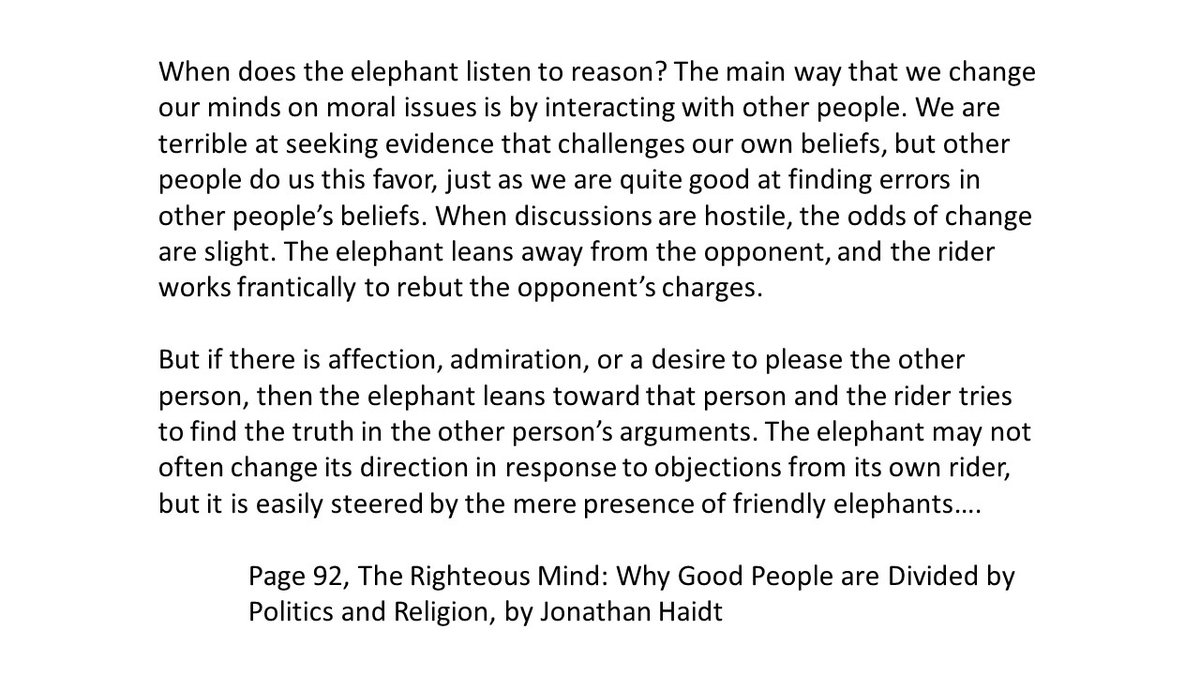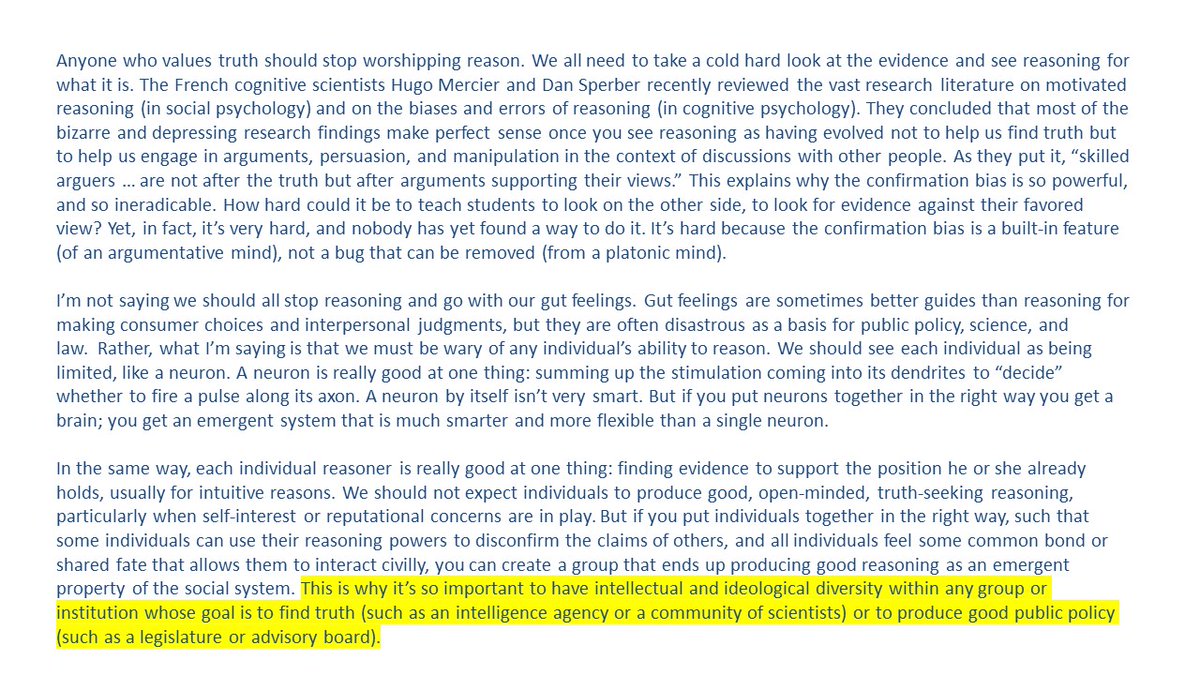Inspired by some of @Sarah_Mojarad& #39;s recent tweets, I thought I& #39;d share a few of my favorite readings that I TRY to use to animate my approach to this medium when interacting with folks with whom I may disagree.
A short https://abs.twimg.com/emoji/v2/... draggable="false" alt="🧵" title="Thread" aria-label="Emoji: Thread">
https://abs.twimg.com/emoji/v2/... draggable="false" alt="🧵" title="Thread" aria-label="Emoji: Thread">
1/4
A short
1/4
First, @conor64 had interviewed @ericpliu to highlight five features of better arguments.
Only five--but they are hard, if we are to achieve Eric& #39;s goal of "less stupid arguments."
2/4 https://www.theatlantic.com/ideas/archive/2018/06/5-features-of-better-arguments/563672/">https://www.theatlantic.com/ideas/arc...
Only five--but they are hard, if we are to achieve Eric& #39;s goal of "less stupid arguments."
2/4 https://www.theatlantic.com/ideas/archive/2018/06/5-features-of-better-arguments/563672/">https://www.theatlantic.com/ideas/arc...
Next is a winning blog post from @JamesClear about what actually changes peoples& #39; minds.
Spoiler alert: it isn& #39;t reasoning.
3/4 https://jamesclear.com/why-facts-dont-change-minds">https://jamesclear.com/why-facts...
Spoiler alert: it isn& #39;t reasoning.
3/4 https://jamesclear.com/why-facts-dont-change-minds">https://jamesclear.com/why-facts...
And finally, anything that comes from @ImTheQ and this cool project.
4/4 https://www.idcconline.com/home ">https://www.idcconline.com/home"...
4/4 https://www.idcconline.com/home ">https://www.idcconline.com/home"...
This thread got some traction, so I& #39;ll augment further.
In the same vein of understanding why humans (at least OTHER humans) can be so stubborn/blind/foolish sometimes, @juliagalef& #39;s @TEDTalks is great.
Aim to be a scout.
5/4n https://www.ted.com/talks/julia_galef_why_you_think_you_re_right_even_if_you_re_wrong">https://www.ted.com/talks/jul...
In the same vein of understanding why humans (at least OTHER humans) can be so stubborn/blind/foolish sometimes, @juliagalef& #39;s @TEDTalks is great.
Aim to be a scout.
5/4n https://www.ted.com/talks/julia_galef_why_you_think_you_re_right_even_if_you_re_wrong">https://www.ted.com/talks/jul...
I have always found @JonHaidt& #39;s elephant (intuition/feelings/survival brain) and rider (language-based cognition) metaphor really powerful. And this excerpt from his #TheRighteousMind applies it well to argument and suasion.
6/4n
6/4n

 Read on Twitter
Read on Twitter



